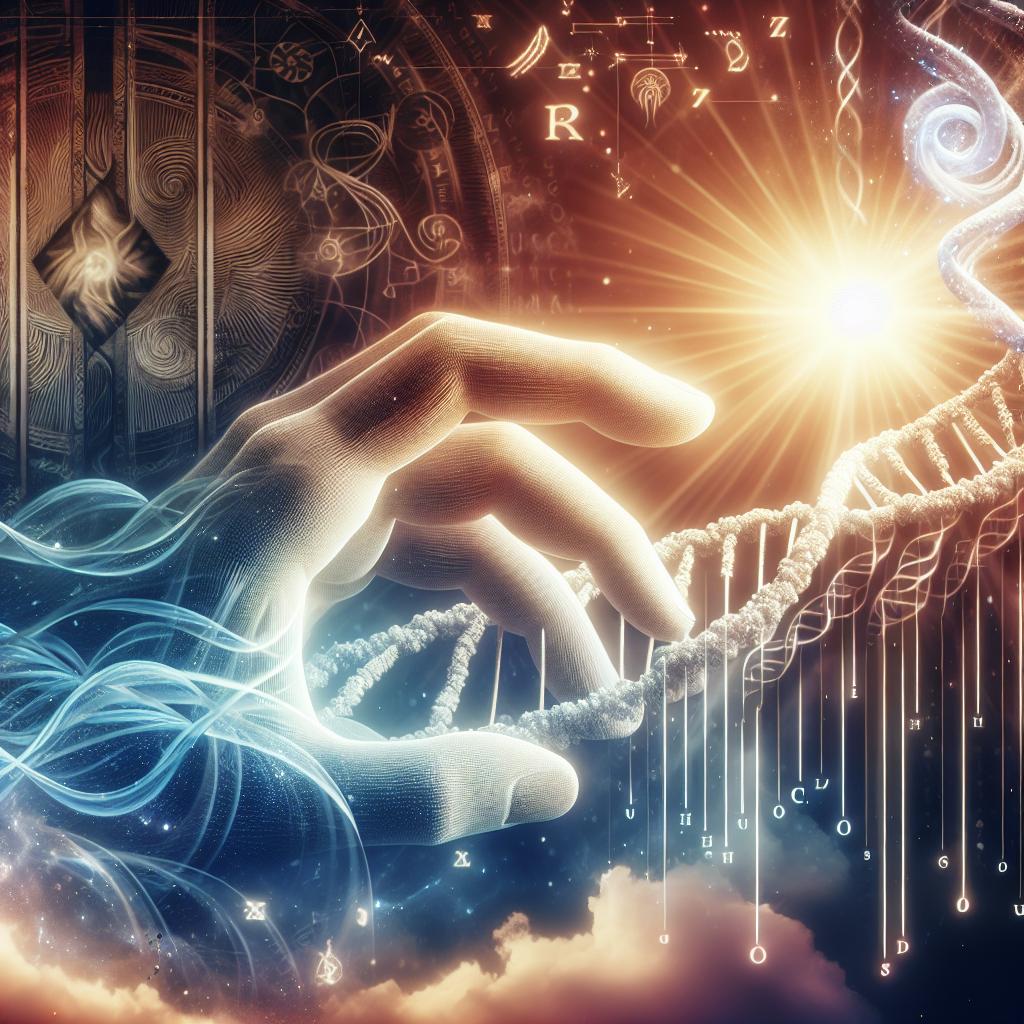
Unlocking Divine Mysteries: Decoding DNA - A Christian Perspective
Published: 25 August 2024
DNA: Marvellous Messages or Mostly Mess?
The discovery of the double helix structure of DNA by James Watson, Francis Crick, and Maurice Wilkins in 1953 was a groundbreaking moment in scientific history. This remarkable molecule carries the instructions for all living things, transmitting information from one generation to the next. The complexity and design of DNA provide strong evidence for a Creator, as stated in the Bible. In this article, we will delve into the origin and intricacies of DNA, exploring its role as an information storage system and debunking misconceptions about "junk DNA."
What is the origin of DNA?
According to the Bible, God created all living things, including human beings, in six days. After completing His creative work, God rested and has since sustained His creation. The genetic information encoded in DNA serves as a testament to this divine craftsmanship. Richard Dawkins, a prominent atheist and evolutionist, acknowledges that the information capacity of a single human cell is enough to store the entire Encyclopedia Britannica multiple times over. Just as the Britannica had intelligent writers to produce its information, it is reasonable to believe that the information in living organisms also had an original composer.
Is the genetic code universal?
Many evolutionists claim that the genetic code found in DNA is universal and serves as evidence for a common ancestor. However, this claim is false. There are exceptions to the universal genetic code, some of which have been known since the 1970s. For example, in organisms such as Paramecium, certain codons code for different amino acids. Additionally, some organisms code for extra amino acids beyond the standard 20 types. If one organism evolved into another with a different genetic code, all the pre-existing encoded messages would be scrambled. This presents a significant problem for the theory of evolution. Furthermore, our cells contain mitochondria with their own slightly different genetic code, suggesting common design rather than common ancestry.
What is the role of "junk DNA"?
For many years, scientists considered non-coding DNA, commonly referred to as "junk DNA," to be functionless remnants of our evolutionary history. However, this viewpoint is based on the false assumption of evolution and hinders scientific inquiry. More enlightened researchers have discovered numerous functions for non-coding DNA, such as its role in genome structure and gene regulation. Some creationists propose that this DNA plays a crucial role in the rapid diversification of species after the global Flood described in the Bible.
How does DNA store and transmit information?
DNA is by far the most compact information storage system in the universe. Even the simplest known organism has hundreds of protein-coding genes, totaling thousands of "letters" in its DNA sequence. Humans possess billions of these letters in each cell nucleus. The arrangement of these DNA "letters" carries the information necessary for life. The structure of DNA allows for precise copying and transmission of this information from one generation to the next. The pairing of specific bases—adenine (A) with thymine (T) and cytosine (C) with guanine (G)—ensures accurate replication. Editing machinery encoded in DNA further enhances copying precision, with only about one mistake occurring in every ten billion copyings.
What about introns and non-coding sequences?
DNA is not read directly but transcribed into a similar molecule called RNA. In organisms other than bacteria, this RNA contains regions called exons that code for proteins and non-coding regions called introns. Elaborate machinery called a spliceosome removes introns and joins exons together to form messenger RNA (mRNA), which is then translated into proteins. The existence of introns raises questions about their purpose. While some scientists initially believed they were vestigial remnants, research has shown that they play crucial roles in gene regulation and overall genome function. Introns are an essential part of an elaborate genetic network and contribute to the development of multicellular organisms from a single fertilized egg.
What recent discoveries shed light on DNA's complexity?
Ongoing research continues to reveal the astounding complexity of DNA. Recent studies have shown that non-coding RNA molecules, which complement the non-coding DNA regions, play critical roles in genetic networks. These molecules interact with DNA, mRNA, and proteins, enabling multi-tasking and parallel processing within living organisms. This genetic network controls the order in which genes are switched on and off, allowing for the development of various multicellular life forms. This complexity points to intelligent design rather than chance evolution.
How does this challenge evolutionary interpretations?
While some scientists propose that this advanced genetic network evolved gradually over time, this raises significant challenges. The intricate nature of the system suggests irreducible complexity, meaning it cannot be built by natural selection working on small changes. Moreover, the presence of this network in a fertilized egg supports the biblical perspective that all the necessary programming for complex life forms was present from the beginning. The post-Flood diversification of species could have involved utilizing certain parts of non-coding DNA to enable rapid adaptation and variation. DNA serves as a remarkable testament to the Creator's handiwork. Its information storage system, intricacies of replication, and role in gene regulation defy naturalistic explanations. Non-coding DNA is far from "junk," with numerous functions continuously being discovered. The complexity and design observed in DNA align with the biblical account of creation and offer profound evidence for a Creator. As we continue to explore the mysteries of DNA, we gain a deeper appreciation for God's wisdom and creativity displayed in His creation.
